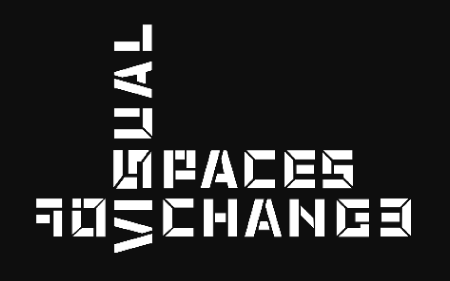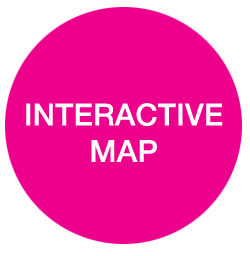
It will take place at the Common House of the Rectory of U. Porto, on June 21, at 18h00, as part of its cultural program of classes open to the community, another session of the AAI Debates cycle entitled “City and Cinema: A Projected Relationship”, integrated in the Communication, Photography and Multimedia (CFM) curricular unit of the 4th and 5th year and CAAD of the 3rd year of FAUP, with the presence of Humberto Kzure, architect and urbanist.
Pedro Leão Neto, coordinator of the Visual Spaces of Change project, is also present.
“The relationship between the city and the cinema, from a socio-cultural dimension, enables countless reflections and different perceptions about the elements of urban form and ways of life. Both architects and filmmakers, through the fundamentals of photography or film images, for example, develop a particular look, a selection and a filter capable of modifying the common vision of places and things, while at the same time enabling or inducing other looks and other considerations about the urban. In this sense, identifying and analyzing the foci of the cinematographic representations of urban space, which the films themselves reveal, help to build and culturally reinforce the dynamic and contradictory nature of the contemporary city – its complex and heterogeneous character, full of symbolic value, identity and memory. The film images constitute, therefore, support and document that allow us to discuss the visual representations of the urban and correlate them with the individual and/or collective perception. Although the cinema is close to the experience of space and “real” time, it is a representation inspired and biased by ideologies and feelings of the audience and its directors. After all, for individuals in the urban environment, with more frequent access to films, and who have the “real” city as a comparative element, the city of each film is interconnected with other spaces lived, simulated or perceived by each one, including architects and planners. The discussion about city and cinema has thus proved to be a fertile field for the construction of a theoretical and conceptual matrix about countless urban phenomena that are manifested in current society. In this respect, many researchers have devoted efforts to extract from the films meanings that arise before the very materialization of images. As a matter of aesthetics and ethics, cinematographic representation is, as Jacques Aumont (2004) states, a “semiology of reality” in which the city is inscribed. Faced with this context, the individual who experiences urban life develops throughout his existence a particular, sometimes intuitive, sometimes reflective, but always subjective perception of the territory that circumscribes him in time and space. This human condition, accompanied by multiple meanings and varied interpretations, presupposes that each and every manifestation of culture implies the existence of “recognizable places” impregnated in its materiality by representations. A painting, a photograph or a film are, among so many, vehicles that sharpen the human imaginary. They are, so to speak, instruments capable of codifying or subverting meanders contained in the subject’s visual experience”. – Humberto Kzure-Cerquera
The entrance is free.
Framing
The organization of these debates is the responsibility of the Communication and Space Representation Centre (CCRE / CEAU / FAUP) and the Architecture, Art, Image and Innovation Laboratory (AAi2 Lab), within the VSC project.
The research group CCRE – Spatial Communication and Representation Centre – has developed a series of pedagogical, documentary and research activities relating Architecture and Art.
The general objective of these activities has been to promote a broad reflection on the contribution of images in the understanding of reality and the construction of imaginary, between document and fiction, between reproduction and manipulation, between analog and digital.
These activities have been integrating several actions related to the universe of contemporary image, more specifically photography, also allowing the participation of groups and citizens outside the academy, thus opening universities to civil society and other institutions.
In the universe of Image, Photography is an object of particular interest, being explored and critically analyzed as an instrument of registration and research from an Inquisitive, Curatorial and Communicative perspective. The privileged space for such registration and photographic research is Architecture, understood as a broad universe that simultaneously integrates the macro and micro levels of transformation of the Territory and the City and its multiple Experiences.
With the institutional support of the Faculty of Architecture of the University of Porto (FAUP), the Rectory of the U. Porto and scopio Editions, this 2nd Cycle of debates AAI – Architecture, Art and Image will be very connected to the exploration of photography as an instrument of reflection on the transformation of public space.
Biographies
Humberto Kzure-Cerquera is an Architect and Urban Planner, Master in Urban and Regional Planning by IPPUR/UFRJ, PhD in Urbanism by PROURB/FAU/UFRJ and BAUHAUS Universität Weimar and Professor of these areas of knowledge at the Architecture and Urbanism Course of the Federal Rural University of Rio de Janeiro.
Currently, he is developing a post-doctorate in three European universities: Center for Architecture and Urban Studies – CEAU | Faculty of Architecture – University of Porto – FAUP | Portugal, with Prof. Alvaro Domingues, at the Centre de Recherches em Histoire Internationationale et Atlantique – CRHIA, Université de La Rochelle, with Prof. Laurent Vidale Interdisciplinary Centre for Urban Culture and Public Space, Faculty of Architecture and Spatial Planning – Technische Universität Wien, with Profa.Sabine Knierbein.
In addition to academic work, he holds awards and distinctions, such as: Morar Carioca; CAIXA Award for Social Housing; City Streets – Belo Horizonte; Revitalization of the Historic Center of Cuiabá/MT – 2000; Urban Structuring Project for the XVIII Administrative Region of Rio de Janeiro; Favela-Bairro; Urbanization of the Central Area of Goiânia; Contribution to the Brazilian Architecture Award for the Regional Attorney’s Office – IAB/RS; Ecological, Tourist and Cultural Corridor Barão de Mauá – IAB/RJ; Revitalization of the Historic Center of Sumaré/SP; Urban Project for the Largo da Batata region – IAB/SP; Flying Circus – IAB/RJ.
He was a consultant for the EIA/RIMA (Territorial Planning for Traditional Communities) in areas near the Kwanza River Hydroelectric Power Plants – Angola and in Belo Monte on the Xingu River Medium – Pará | Brazil.
He exhibited at the Venice Biennial in 2002, at the Rio Arquitetura International Exhibition and, three times, at the São Paulo International Architecture Biennial, besides receiving an Honorable Mention at the Lima Biennial – Peru, in 2004.
In addition to these activities, he has professional training in Film, Photography, Theater and Scenography. With the Portuguese filmmaker Teresa Prata is producing the documentary “A Cidade de Portas”, about the city as a frontier of Prof-architect and Urbanist Nuno Portas’ thought.
Pedro Leão Neto (CCRE, AAI2 Lab)
Architect by FAUP (1992) where he is currently regent of Communication, Photography and Multimedia of the 2nd cycle, is coordinator of the research group CCRE, integrated in the R&D center of FAUP, coordinator of AAI 2 Lab integrated in the Competence Center of the University of Porto for the media area U.Porto Media Innovation Labs (MIL) and Director of the Cultural Association Cityscopio (ACC). He is the editor and coordinator of the publications of scopio Editions since 2010, whose focus is on documentary and artistic photography related to Architecture, City and Territory.

